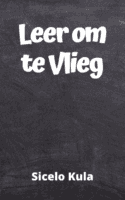Clever, academic Lelethu is frustrated and sarcastic and envious and losing hope of fulfilling her dreams, as she goes about the chores at home. And who can blame her? The family has a tiny income from her mother’s domestic work and her brother’s semi-job. So she’s missing out on varsity. Meanwhile her best friend Thuli is having the “best time eva!” there. And with only her matric, Lelethu can’t even get a job.
It’s supposed to be a human and constitutional right to fulfil your potential – be all you are capable of and want to be – by getting a suitable education and a job. But as Ros Haden’s story illustrates, this comes much, much easier to some people than others. And brains and willingness to work hard can have little to do with it in our still-unequal society.
In the story the author contrasts the access to resources, jobs and education of five main characters: Lelethu, Chelsea, Thuli, Thato and Ayanda.
Lelethu is supported by only one parent, who is a domestic worker. So there is no spare money for creating an academic home environment, like having books to inspire reading. There’s no money for registration at varsity, or lots of phone data or a computer or the internet at home. There is little money for transport. A person needs these resources to apply for and go to varsity. Or to find out about and apply for jobs and get to interviews. So, Lelethu is clever, but shut out by unfair life circumstances.
Thuli’s situation is similar, but the reader can assume her family has the minimum resources to apply for a bursary and pay for transport and so on. And luckily, attractive Thuli has a bright, warm, confident character. She can engage well with all the better-off students she is meeting.
However, note what she soon tells Lethu about her boyfriend, Thato. His laptop “practically writes his assignments for him” and he has a fancy ‘vibrating bed’ at res. We know Thato has all the things he needs to make varsity life a breeze – he just has to do the work to pass. We can assume he’s had the home-life, and been to the sort of good school, that will help him fit right in.
Look at the character-revealing scene when the three girls arrive at the party: Thuli and Lethu in a minibus taxi and Chelsea in an Uber taxi. Chelsea comes from such a bubble of privilege that she can’t believe her new friend would use a minibus taxi. She tells Thuli to stop that ‘unsafe’ practice. It hasn’t crossed her mind that Uber or any private taxi is way, way out of reach for most people. They have no choice but to use this ‘unsafe’ transport. What’s normal to Thuli is ‘unsafe’ to Chelsea, who is soon to get her own car. (And if her Dad had his way, a driver too.) No time wasted waiting for transport in Chelsea’s world!
Plus, she doesn’t hesitate to parade her backup of family wealth and power: “You asshole … you think you own the roads …. My dad will sue you.”
The author, however, does show us how more aware young South Africans have become of privilege and racism. Chelsea is appalled that her mother saw fit to give her domestic worker’s child – Lelethu – a cast off, broken doll. And to expect ‘gratefulness’. What an insult! We know Chelsea expected her father to offer clever Lelethu something more than a temporary cleaning job. We can thank the #FeesMustFall movement for bringing ‘white privilege’ to every South African student’s attention.
Most white students truly are privileged in the context of South Africa. And most students from poor, un-resourced homes are black. Which student – Chelsea or Thuli – is most likely to finish quickly and do well at her degree? The statistics are upsetting. This article used 2016 figures from the Department of Higher Education:
According to the report, 24,5% of students ‘dropped out’ of university after their first year and only 14,4% graduated in three years, while a whopping 52,1% graduated with their first degrees after an average of seven years. A staggering 47,9% of the group never graduated.
The highest drop-out rates are among black and coloured students, with the report stating that only 11,9% of black students graduated after three years, and 32,1% left after their first year. (Read about it here.)
The Statistician-General, Pali Lehohla, explained in November 2016:
“There are several reasons, but you find that their stories are the same. When a 17-year-old with no money is admitted at university and funded for education, but does not have money for food, or accommodation or some other essential, they drop out. Where else can they get money to sustain themselves?” he said to the committee. (Read about this here.)
As the story shows – especially the scene at the party where Lelethu feels out of place – there is another reason for failing a year, or dropping out. This is the stress of interacting with much better-resourced, confident students who are comfortable in the ‘culture’ of the university. And let us not forget: home language English-speakers, or fully-bilingual students like Thato, are at a huge advantage studying in English.
The story ends by showing a different pathway to Lelethu’s dreams. How cool is Ayanda? A boy from the same township, but choosing a different path to success: volunteering, working, all the while gaining skills, knowledge and social confidence. And now, studying via distance education at Unisa.
As we finish the story we feel confident that Lelethu, also now volunteering, and applying in time for bursaries, is going to reach at least one of her goals. It’s one that made us giggle: “I swore that minute that one day I would be the boss of that Chelsea Clarke, and she would be grateful … no shit!”




